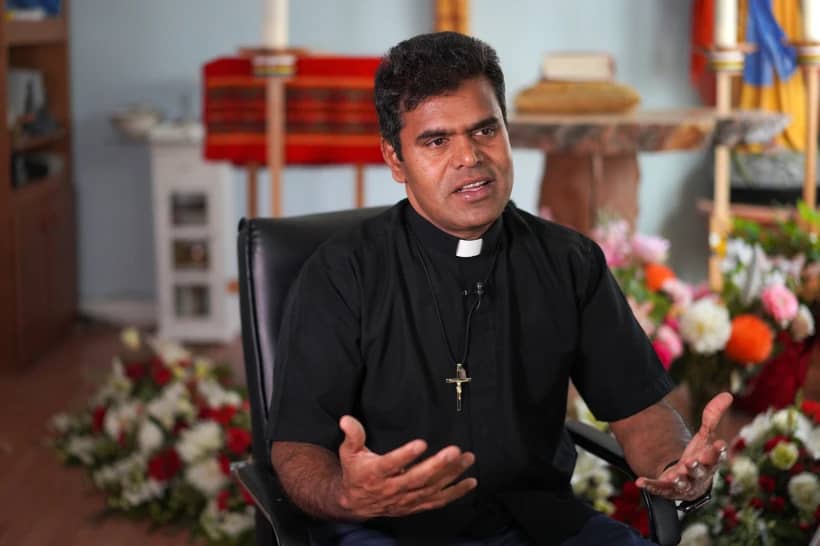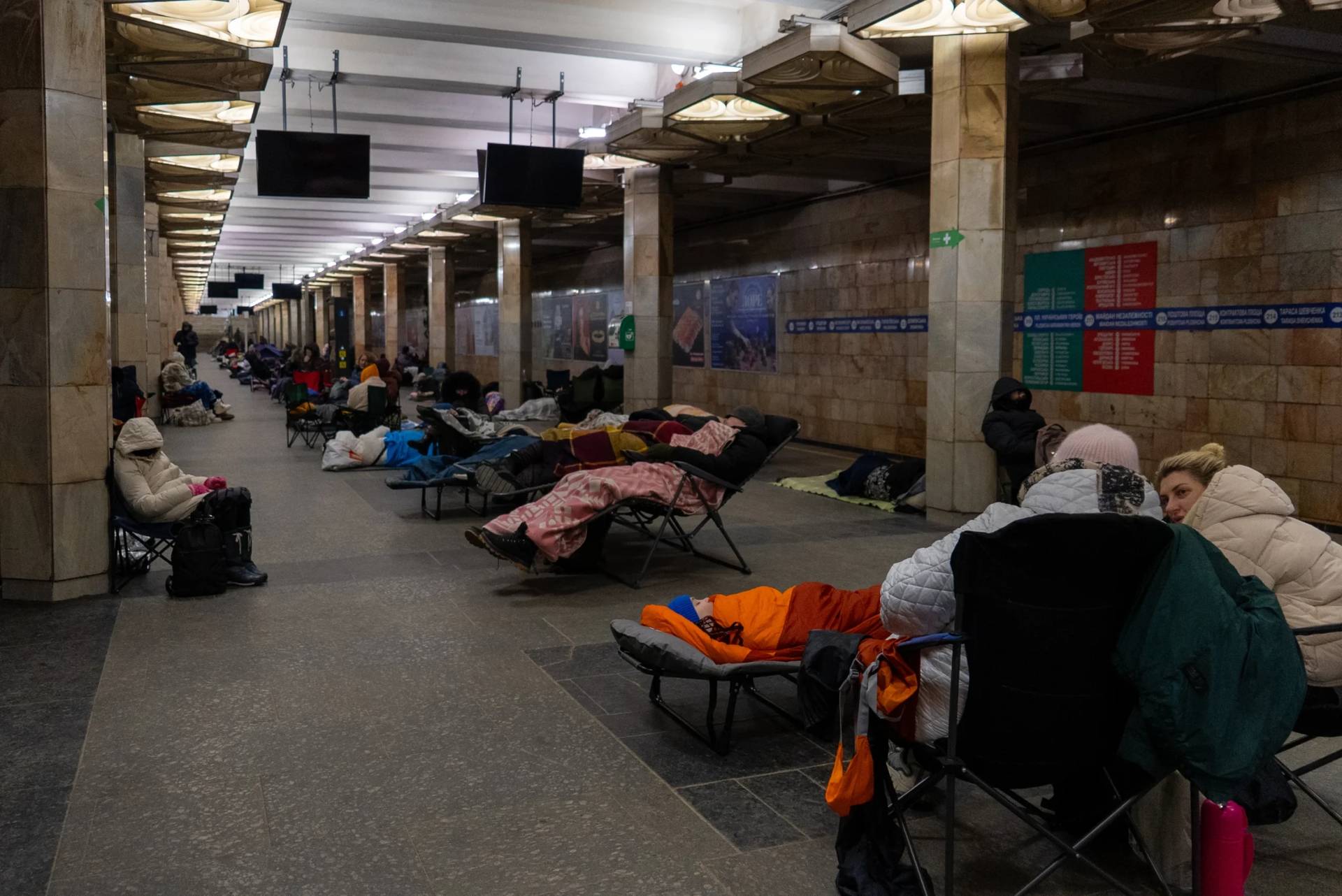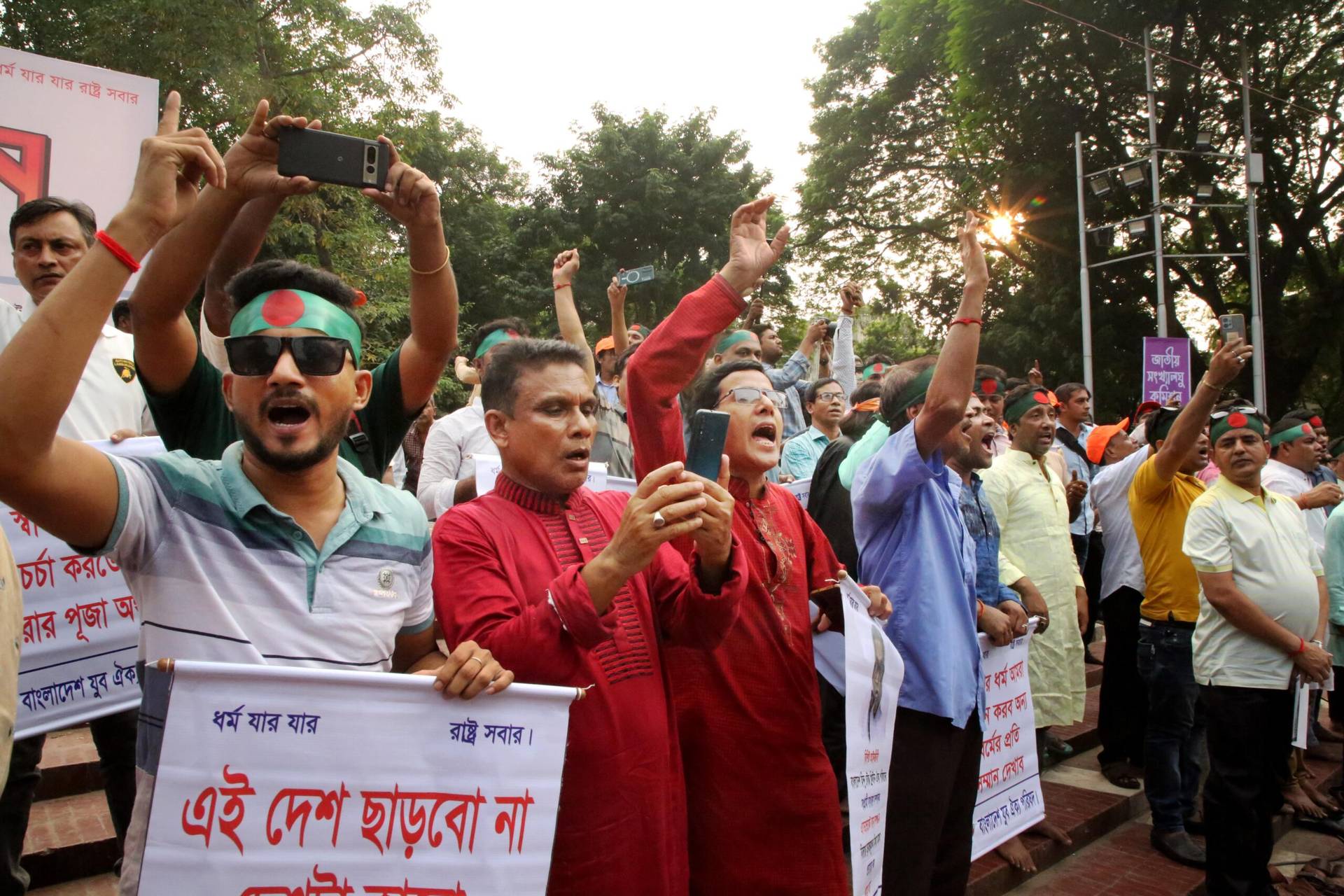SOFIA, Bulgaria — The Bulgarian Orthodox Church on Friday pulled out of a meeting due later this month that is meant to bring together leaders of all the world’s Orthodox churches for the first time in more than a millennium.
Alexandra Karamihaleva, responsible for media contacts at the Holy Synod, the church’s ruling body, told The Associated Press that the decision, officially signed by Bulgarian Patriarch Neophyte and his bishops, was final.
“No further meetings or discussions on this issue have been scheduled,” she said.
Istanbul-based Ecumenical Patriarch Bartholomew I, who ranks as “the first among equals” hopes the gathering of leaders of 14 independent Orthodox churches later this month on the Greek island of Crete, can promote unity among the world’s 300 million Orthodox Christians.
The Bulgarian church, however, could still attend and resolve whatever differences it feels it has at a meeting two days before the June 19 start of the week-long meeting, said an official for the secretariat of the Holy and Great Council.
The gathering will take place even if the Bulgarians do not attend, said the official, speaking on condition of anonymity because the official wasn’t authorized to speak to the media.
All the Orthodox churches, old and new that emerged over the centuries, have never met like this before — not since the “great schism” of 1054, when the Orthodox and Roman Catholics split after disputes over the Vatican’s power.
Bulgaria’s absence from the summit could mar but not stop the initiative, which has the backing of Church leaders such as Patriarch Kirill of Moscow, who leads the world’s largest Orthodox flock with an estimated 100 million believers.
Initially, Bulgaria had called for a postponement of the Council, but on June 3 said it was withdrawing its participation. It also said it had canceled a chartered flight to Crete, all reservations for the summit, and said it had informed the heads of the other 13 churches about the decision.
Among the reasons for the withdrawal was the argument that there was a lack of “particularly important” topics on the agenda, the proposed seating plan, and a rule that texts being discussed would not be subject to editing in the course of discussions.
The Bulgarian Holy Synod also protested about what it said were “large and unfounded expenses” for participation in the summit.
The official said the Bulgarian church’s objections were not understandable because it had agreed and signed up to all the rules at a January meeting and participated at every planning meeting. The seating plan was changed, and the costs to participate were significantly reduced.
There will also be a preliminary meeting on June 17 to address any outstanding issues including any the Bulgarian church may still have, the official added.
The Holy and Great Council has been 55 years in the preparation. Since the “great schism” there have been about a dozen smaller Orthodox councils over the centuries to discuss theological or doctrinal issues, but there has never been a meeting on the scale of the Holy and Great Council.
The Crete council will discuss the mission and role of the Orthodox Church and its global flock, issues relating to the function of the churches and its relations with other Christian faiths. Unity of the Orthodox churches is considered a key prerequisite to any reconciliation with the Vatican.
In addition to the Bulgarians, the Orthodox Patriarchate of Antioch has also threatened to boycott the summit, in their case over a jurisdictional dispute involving Qatar with the Patriarchate of Jerusalem.
The Vatican has announced that Pope Francis selected Cardinal Kurt Koch and Bishop Brian Farrell, respectively the president and secretary of the Pontifical Council for Promoting Christian Unity, as his representatives at the council.
Sending the Vatican’s top ecumenical officers demonstrates that “it is the Holy Father’s judgment that this is supremely important for the Orthodox, for our relationship with the Orthodox Church and, beyond that, it’s supremely important for the Christian witness in a world that is ever more confused about the role of religion,” Farrell told Catholic News Service June 8.
The Russian Orthodox Church announced Friday that an emergency meeting of its leadership would be held on Monday to discuss the council in Crete, while the Serbian Orthodox Church has said it will attend but believes the event should be used as a “consultation” to prepare a future council.
On Friday, a group of Orthodox scholars launched an on-line petition in support of beginning the summit as planned, saying “there are no insurmountable difficulties to beginning the council in June.”
“To postpone the council once again,” the petition says, “is to fail to live up to the principle of conciliarity on a global level … representatives of the Orthodox Churches that wish to jeopardize the work of the Council by further delays should not intimidate the majority of the Orthodox leaders that wish to carry out the commitment to have the council on this year’s feast of Pentecost.”
(The Catholic News Service and Crux Staff also contributed to this report.)












